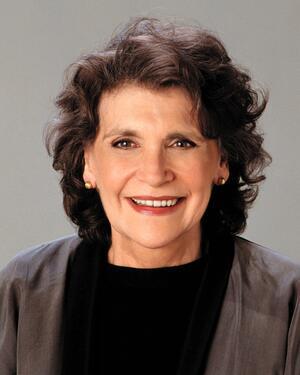Barbara Seaman
When I came of age in the 1950s, many doctors were paternalistic toward women. They fielded our questions with statements like “Don’t worry your pretty little head,” or “Would I give you anything that could harm you?” Unfortunately, the answer was yes.
For example, when my son was born, I told my obstetrician that I planned to breastfeed. But he said I didn’t have the right personality, too educated. The infant formula companies, after all, had persuaded doctors in the 1950s that their product was “nutritionally superior” to mother’s milk. I said my mother had breastfed me, and thought that it was my decision. To the contrary, he imagined that every patient understands her “doctor knows best.” He never told me that he gave me a laxative that went right into my milk. My son might have died if his pediatrician had not tracked down the cause of his extreme weight loss.
I first learned about the dangers of estrogen when my Aunt Sally died of uterine cancer at the age of 49. As we stood by her hospital bed, her cancer doctors warned us, her sisters and her nieces, to “never take Premarin” because we might have the same “susceptibilities.” They told us it had been known from the 1930s that estrogens frequently bring on cancer in the endometrium of menopausal women. Sally did have a tough menopause, but I was horrified that her gynecologist failed to inform her of this risk so she could decide for herself if it was worth it.
That is how I became obsessed with informed consent. I wrote about health and medicine from the point of view of patients, not just the doctors and the pharmaceutical industry. My first articles were on breast feeding and natural childbirth. Then I discovered that many women were getting sick on the birth control pill, and their doctors pooh-poohed it as “all in their mind” and probably due to a fear of sexual liberation. In 1969, I published my first book, The Doctors’ Case Against the Pill. Publication was delayed by several drug companies that tried to get an injunction against it. The judge at last denied the injunction, and some of my fellow science writers told the story of the campaign against me. It caught the interest of Senator Gaylord Nelson, who asked me to send him a letter on why he should hold hearings in the Senate on the dangers of the Pill.
My letter convinced him, and the Senate hearings were held from January to March 1970. At the hearings, Alice Wolfson and her colleagues at DC Women’s Liberation constantly interrupted, asking why patients weren’t testifying and why there wasn’t a contraceptive pill for men. This feminist disobedience, day after day, became a major story in the news, and by June we had secured an FDA warning to users of the Pill. It was the first warning label for any prescription drug.
In 1975, Alice Wolfson and I, along with Belita Cowan, Dr. Mary Howell, and Dr. Phyllis Chesler, co-founded the National Women’s Health Network in Washington DC, to give women a greater voice within the healthcare system. I have continued to write about women’s health, advocating for patients’ rights and raising awareness about pharmaceutical interests. I remain troubled by the medical establishment’s reckless prescription of estrogen in what I termed in my most recent book “the greatest experiment ever performed on women.”
In 1960, Barbara Seaman introduced a new style of health reporting that centered on the patient. She was first to reveal that women lacked the information to make informed decisions on contraception, childbirth, even breast-feeding. Well received by a mass audience, Seaman became a columnist and contributing editor at several women’s magazines, published columns in major newspapers, and consulted for TV medical programs. In 1967-68, Seaman won a Sloan-Rockefeller Science Writing Fellowship at the Columbia University School of Journalism. While there she began her first book, The Doctors’ Case Against the Pill, which was published in 1969, and became the basis for a U.S. Senate hearing, conducted by Gaylord Nelson in January-March 1970. In 1974, Seaman co-founded the National Women’s Health Network. Seaman’s other books include Free and Female, Women and the Crisis in Sex Hormones, Lovely Me: The Life of Jacqueline Susann, and The Greatest Experiment Ever Performed on Women.





Thanks for this most interesting post. Coincidentally, I notice that in the current issue of the Bulletin of the History of Medicine, 2019, 93:4, pp. 550-576, there is an article on Barbara Seaman:
Kelly O'Donnell, "Our Doctors, Ourselves: Barbara Seaman and Popular Health Feminism in the 1970s."